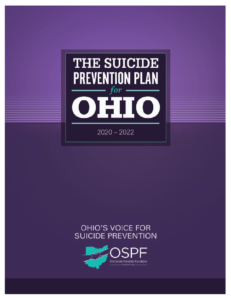-
Suicide & Crisis Lifeline
- Donate
Nov 14, 2022
Event Time: (10:00-4:00)
Virtual Event (Zoom)
Participants will be required to complete two hours of prerequisite training.
Registration is Closed (Max Capacity)
Traditionally, the number of people that die by suicide has increased. Within the first responder community, the number of public safety personnel that takes their own life compared with other lines of duty deaths is believed to be underreported. For instance, more law enforcement personnel die by suicide than other line-of-duty deaths. Stresses associated with COVID have put additional strains on first responders and, in some cases, their ability to perform their jobs effectively. The pandemic has heightened certain risk factors associated with suicide, such as social isolation and job insecurity. According to the Ohio Department of Health, firearms were the leading mechanism of death in 2020, accounting for roughly 55% of all suicides (Suicide Demographics and Trends, Ohio, 2020). As most first responders own firearms, this puts this population at an elevated risk for suicide, along with the other aforementioned risk factors associated with job performance and COVID.
 Since first responders are at an increased risk of dying by suicide, The Suicide Prevention Plan for Ohio (2020-2022) has specifically addressed this issue by including the following objective in the Plan: Integrate suicide prevention best practices and suicide care across the public safety and emergency systems. The Suicide Prevention Plan for Ohio is the result of a statewide effort to guide Ohio’s suicide prevention efforts. Diverse stakeholders partnered, with the support of Ohio Governor Mike DeWine, with state and county agencies, private providers, philanthropic entities, local coalitions, and advocacy voices – most notably those of families and suicide survivors – to craft a plan to mobilize and align efforts to prevent suicide.
Since first responders are at an increased risk of dying by suicide, The Suicide Prevention Plan for Ohio (2020-2022) has specifically addressed this issue by including the following objective in the Plan: Integrate suicide prevention best practices and suicide care across the public safety and emergency systems. The Suicide Prevention Plan for Ohio is the result of a statewide effort to guide Ohio’s suicide prevention efforts. Diverse stakeholders partnered, with the support of Ohio Governor Mike DeWine, with state and county agencies, private providers, philanthropic entities, local coalitions, and advocacy voices – most notably those of families and suicide survivors – to craft a plan to mobilize and align efforts to prevent suicide.
One solution to this ever-increasing issue is to train first responder personnel in evidence-based suicide prevention gatekeeper curriculums. The Ohio Suicide Prevention Foundation (OSPF) funds evidence-based Question, Persuade, Refer (QPR) Instructor training to Ohio first responder agencies. It is prudent to provide all first responders with the education and training necessary to become aware of the warning signs, risk factors, and situations that may cause someone to have suicidal thoughts.
The skills and techniques used in suicide prevention can apply to the public, coworkers, family, and friends. Suicide and suicidal ideation can affect anyone regardless of gender, age, race, rank, etc. Everyone plays a role in suicide prevention. You do not have to be a mental health professional to save a life. Most of the time, it is not a mental health professional that a suicidal person expresses their thoughts and feelings to first—it is a friend, colleague, or family member. This project aims to equip key first responder personnel with the confidence and competence needed to initiate conversations about suicide with colleagues, instill hope, and refer at-risk colleagues to appropriate mental and behavioral health resources.
After participants become certified QPR instructors, they can access supplemental resources on the QPR website, which include information and resources in gatekeeper training presentations specific to first responders.
Registration is limited to the first twenty-five (25) registrations – Registration Deadline: October 31, 2022.
Registration Fee: FREE
Additional Training:
Participants will be required to complete two hours of prerequisite training.
Attendees MUST be one of the following categories:
Law Enforcement
Firefighter
EMS
Dispatcher
This FREE educational opportunity is brought to you by generous contributions from the Ohio Department of Public Safety.
Questions/General Information:
Jason Hughes
Program Manager | Veteran Liaison
Ohio Suicide Prevention Foundation
jason.hughes@ohiospf.org